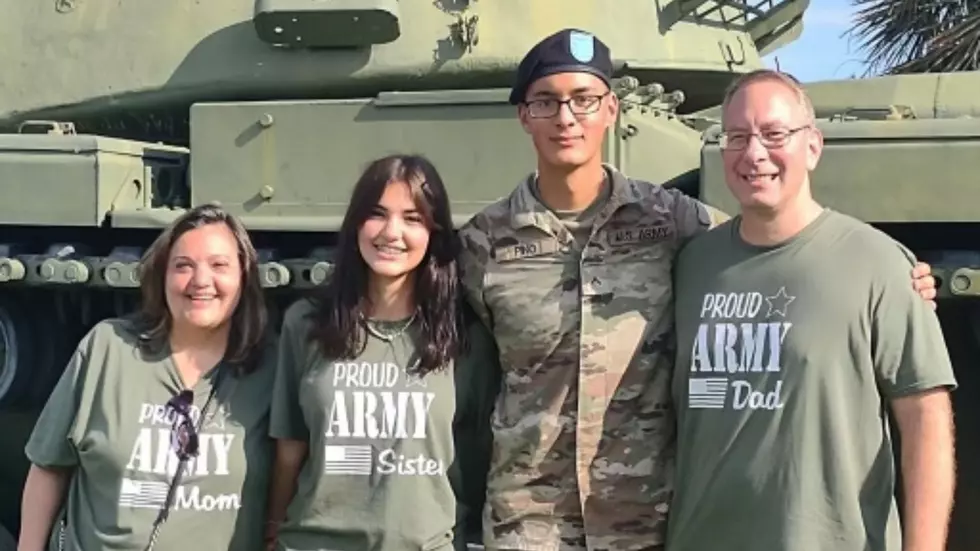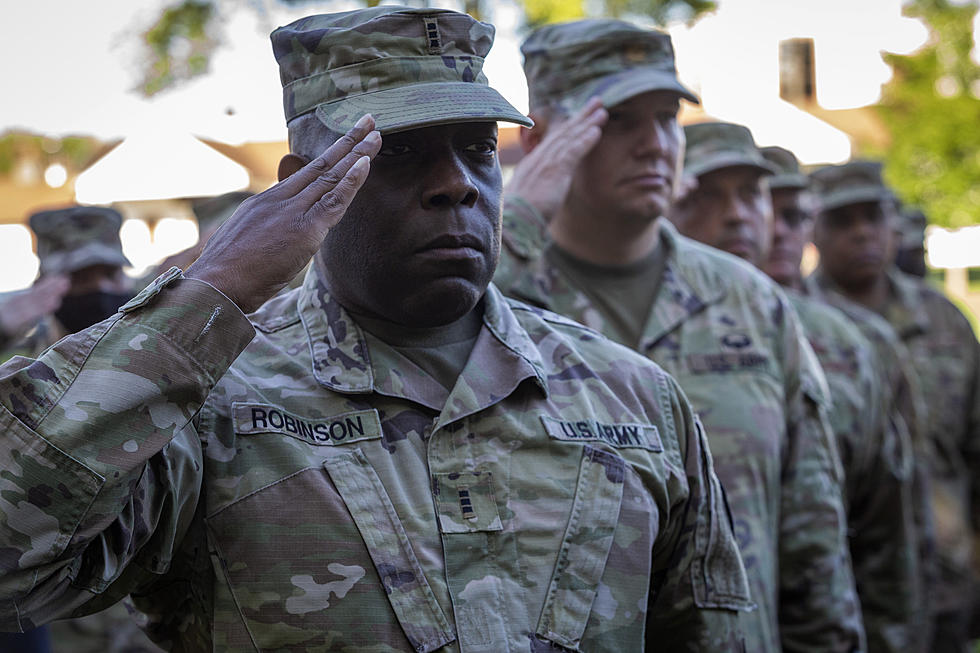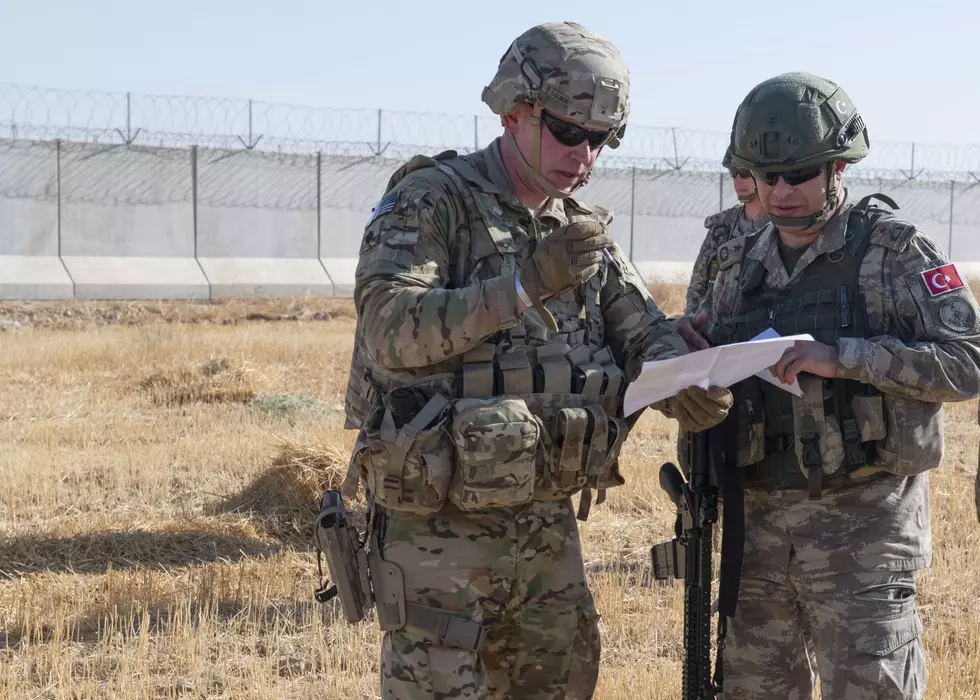
US military chiefs face tough questioning from senators
WASHINGTON (AP) -- America's top two military leaders on Tuesday defended President Barack Obama's strategy to defeat Islamic State militants amid blistering criticism from Republican senators who argued that the administration's program to train and equip thousands of moderate Syrian rebels is faltering.
Defense Secretary Ash Carter acknowledged publicly for the first time that the program aimed at stopping the momentum of IS has slowed to the point where it has only about 60 participating fighters -- a level well beneath that envisioned by U.S. policymakers.
Sen. John McCain, the Armed Services Committee chairman and persistent Obama foreign policy critic, told Carter: "I got to tell you that after four years, Mr. Secretary, that is not a very impressive number."
The Associated Press reported last month that the number of trainees involved in the program at bases in Jordan and Turkey had dropped below 100, with dozens of recruits fleeing the program. At a committee hearing, Carter said there were 7,000 prospective recruits in the pipeline, but conceded that 60 trainees was not an impressive number.
"That is a small class," Carter said. "It results in the fact that this is the number that got through a very vigorous vetting and selection process that we have. ... We expect that number to improve."
McCain, the Arizona Republican who lost to Obama in the 2008 presidential election, said there is no compelling reason to think that anything the U.S. is doing will be enough to achieve the president's goal of degrading and ultimately destroying IS.
"Our means and our current level of effort are not aligned with our ends," McCain said. "That suggests we are not winning, and when you are not winning in war, you are losing."
McCain said Islamic State continues to gain territory in Iraq and Syria, while expanding its influence across the Middle East, Africa and Central Asia. He said there is no responsible ground force in either Iraq or Syria that can seize territory from IS, and slim prospects as well from the U.S.-led coalition's current training efforts of local ground forces.
"While our coalition may own the skies, as the president said yesterday, our air campaign against IS continues to be limited significantly by overly restrictive rules of engagement and a lack of ground intelligence, which only gets worse as IS moves into urban areas to avoid coalition bombing," McCain said.
"Pilots will tell you that they are only as good as the targets they receive," he said, and when three-quarters of our air missions against IS still return to base without dropping weapons, that is indicative of a fundamental problem with our air campaign."
Sen. Jeff Sessions, R-Alabama, chimed in. "At some point the president is going to have to change his mind, it seems to me. We cannot just function based on a campaign promise when the reality is different."
Carter backed the president's policy while acknowledging that more needs to be done to strengthen the mission to train local forces to combat the Islamic extremists.
"The strategy is the right one, but its execution can and will be strengthened, especially on the ground," Carter said.
"I've told Iraqi leaders that while the United States is open to supporting Iraq more than we already are, we must see a greater commitment from all parts of the Iraqi government," Carter said.
He said the U.S. supports Iraqi Prime Minister Haider al-Abadi's stated intent to create an inclusive government that represents the Shia, Sunni and Kurdish sects in his country, but that his efforts are being contested in Baghdad. "It's clear Abadi doesn't have absolute control in Baghdad." Carter said.
The Iraqi military, which was equipped and trained by the United States, has struggled to recover from its collapse a year ago when IS militants captured the country's second largest city, Mosul, and swept over much of northern and western Iraq. Iraqi commanders fled, pleas for more ammunition went unanswered, and in some cases soldiers stripped off their uniforms and ran.
There are no U.S. troops in Syria, but there are about 3,500 in Iraq assisting the nation's security forces and the U.S. military has conducted more than 5,000 airstrikes to counter IS. U.S. troops are now at a new base in the Anbar province of western Iraq, mainly to advise the Iraqis on planning and execution of a counteroffensive to retake Ramadi, the provincial capital.
Gen. Martin Dempsey, chairman of the Joint Chiefs of Staff, said that about a month ago the Iraqi forces were poised to start a counteroffensive in Ramadi, but were persuaded by U.S. military leaders that they should wait to make sure their forces were ready.
Carter said Ramadi needs to be retaken, but that it has to be done under competent Iraqi command and control "which has been a challenge."
"This will be a test of the competence of the Iraqi security forces," Carter said. "It is a test that they must pass."
(Copyright 2015 The Associated Press. All rights reserved. This material may not be published, broadcast, rewritten or redistributed.)
More From New Jersey 101.5 FM









